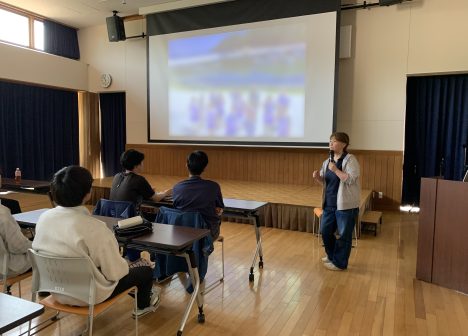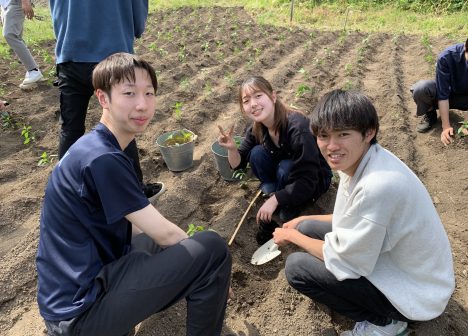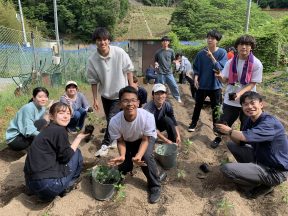 In May and June, members of Habitat Japan campus chapters at Tohoku University and three Hiroshima universities (Hiroshima Shudo University, Hiroshima City University, Yasuda Women’s University) joined volunteer events supported by Cartier Japan.
In May and June, members of Habitat Japan campus chapters at Tohoku University and three Hiroshima universities (Hiroshima Shudo University, Hiroshima City University, Yasuda Women’s University) joined volunteer events supported by Cartier Japan.
On May 15th, student volunteers and volunteers from Cartier in Tohoku visited Onagawa-machi, an area affected by the Great East Japan Earthquake in 2011. There they attended a talk given by a survivor on Onagawa’s recovery 13 years after the earthquake. Following the talk, volunteers split into groups for discussion, and finally came together for a productive Q&A session.
In the afternoon, volunteers moved to a community space that Habitat Japan repaired following the earthquake, “Yume House”, where they volunteered to plant chili peppers in the garden. Planting chilis is an annual garden tradition at Yume House since they grow quickly and are easy to harvest for elderly community members. Even finding their way into Tokyo department stores, the harvest and sale of chili peppers have become a way to reinvigorate the community and promote employment following the disaster.
Then, on June 15th, all three campus chapters in Hiroshima held a joint beach cleanup at Miyajima, Hiroshima Prefecture and made sign boards utilizing collected plastic waste. A total of 59 student and Cartier volunteers worked hard under the hot sun to collect trash along the coastline. Over an hour-long session, volunteers were able to collect a large volume of waste, including byproducts of Hiroshima’s famous oyster fishing industry.
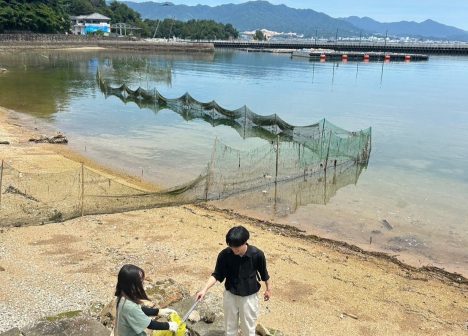
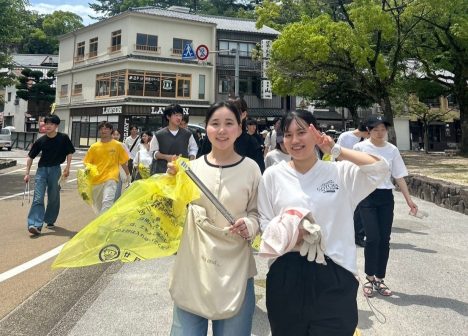
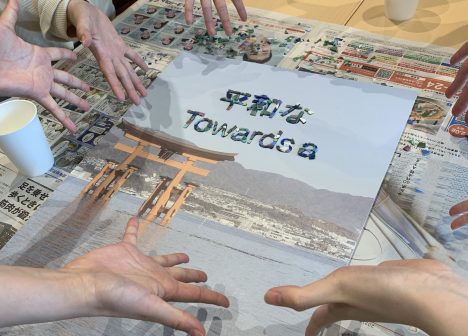
That afternoon, students cleaned and broke down collected plastics to be used to carefully form mosaic characters and symbols on three message boards. Turning trash into treasure, the message boards serve as a call to action to keep Hiroshima peaceful, clean, and beautiful. While it was hard work breaking down resilient plastic waste into small pieces that fit each mosaic, volunteers worked together to form a final product so beautiful that it’s hard to believe it’s made from ocean plastics. Student volunteers were happy to have the opportunity to speak with volunteers from Cartier as they worked together both collecting trash and using it to create signboards.

To our youth volunteers and Cartier Japan, who have supported Habitat Japan campus chapters through multiple joint projects since last year, our sincerest thanks.

